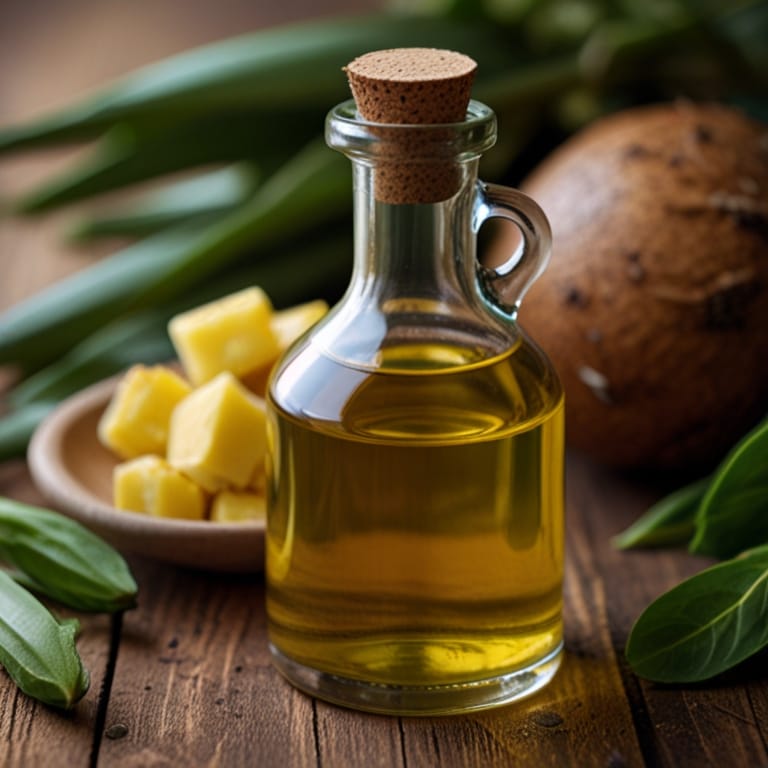Have you ever wondered if some of the ingredients we use every day are doing more harm than good? We’ve all heard the phrase, “You are what you eat,” but rarely do we stop to think about what’s actually going into our food. Whether you’re cooking a comforting pot of chili or a quick breakfast wrap, it’s time to re-evaluate what we’re tossing into the pan. Why? Because removing just a few culprits from your kitchen can lead to healthier meals, clearer minds, and even more time in your day. It’s time to Simplify Your Life—starting with what you’re cooking.
Think of it like decluttering your pantry the same way you’d clean out an overstuffed closet. Sometimes, less really is more. Let’s dive into three common ingredients you might want to stop cooking with—and explore why doing so could change your life.
Table of Contents
Why Ingredient Choices Matter More Than You Think
Every day, you make hundreds of tiny choices. What to wear. When to reply to a message. What to make for dinner. But here’s the kicker—those little food choices? They add up more than you think. If you’re aiming to Simplify Your Life, evaluating what goes into your meals is a smart place to start.
Consider this: Your body is like a car. Would you pour dirty oil into your engine and expect it to run smoothly? Of course not. So why cook with ingredients that clog your system, disrupt hormones, or spike your blood sugar? It’s not just about nutrition—it’s about how you feel every day. Energy slumps, mood swings, and sluggish digestion are often tied directly to what’s on your plate.
Research from the Harvard School of Public Health has repeatedly shown that dietary choices directly influence long-term health outcomes. You don’t have to overhaul your entire lifestyle overnight. But by cutting out a few key ingredients, you can pave the way for more energy, better focus, and easier cooking routines.
It’s not just theory—many home cooks and nutrition-conscious families are making this shift right now. Let’s dig into the top three ingredients we recommend you stop cooking with and why.
The Hidden Dangers of Vegetable Oils
If your kitchen has a bottle of canola, soybean, or corn oil, you’re not alone. These oils are everywhere—in dressings, stir-fries, and even that delicious-looking pancake recipe on the back of a box. But these processed oils, often labeled as “heart-healthy,” are doing anything but helping your heart.

Vegetable oils are usually extracted using chemical solvents and are high in omega-6 fatty acids, which can trigger inflammation when consumed in excess. Chronic inflammation has been linked to everything from arthritis to heart disease to mental health disorders. Imagine constantly pouring fuel on a tiny flame. That’s what excess omega-6 does to your body.
Dr. Catherine Shanahan, a biochemist and author of “Deep Nutrition,” explains that processed vegetable oils are among the most damaging elements in our modern diet. “They create cellular instability and increase your risk of nearly every chronic disease,” she warns.
So what should you use instead? Extra virgin olive oil, avocado oil, and even grass-fed butter offer cleaner, more stable fats that don’t break down under heat and support better overall health. Plus, they taste better! Think of cooking with real fats like wearing natural fibers—more breathable, less toxic, and far more comfortable in the long run.
MSG: Flavor Enhancer or Health Hazard?
MSG, or monosodium glutamate, has long been a controversial ingredient. While some studies claim it’s safe in moderation, many people report headaches, nausea, and brain fog after consuming it. It’s commonly found in pre-packaged seasonings, takeout foods, and snacks. If you’ve ever felt unusually sluggish or bloated after a quick meal, MSG might be the sneaky culprit.
The challenge with MSG is that it stimulates your brain to think food tastes better than it actually is. It’s a trick—a sleight of hand played on your taste buds. And just like any trick, the effects wear off, leaving your body to deal with the consequences.
Dr. Russell Blaylock, author of “Excitotoxins: The Taste That Kills,” argues that MSG overactivates brain cells to the point of damage. “It can act like a drug in your system,” he notes, “leading to everything from mood disorders to long-term neurological damage.”
So how can you keep flavor while ditching MSG? Try herbs like rosemary, thyme, or smoked paprika. Fermented foods like soy sauce (without MSG), miso, or nutritional yeast can also add depth to dishes naturally. Your taste buds can be retrained—and your body will thank you.
Rethinking Refined Sugar in Everyday Meals
We all know sugar isn’t great for us. But you might be surprised where it’s hiding. Refined sugar isn’t just in desserts—it’s in sauces, salad dressings, and even so-called “healthy” snacks. The average American consumes about 17 teaspoons of added sugar daily. That’s like spooning sugar into your mouth for fun.
Refined sugar spikes your blood sugar, leading to energy crashes, irritability, and even long-term health issues like insulin resistance and fatty liver disease. Think of sugar like glitter—it gets everywhere, and once it’s in your system, it’s tough to clean up.
Dr. Robert Lustig, a pediatric endocrinologist and leading anti-sugar advocate, says, “Sugar turns off the hormone that tells your brain you’re full. So you eat more. And more.”
Cutting refined sugar doesn’t mean cutting all joy. Natural sweeteners like raw honey, maple syrup, or dates can give you the sweetness you crave without the chemical crash. Plus, reducing sugar intake clears your mind and can help stabilize your mood—a huge step in the journey to Simplify Your Life.
What to Use Instead: Healthier Substitutes That Work
You might be thinking, “Okay, but what do I cook with instead?” Don’t worry—we’re not leaving you hanging. Here’s a quick reference table with swaps that are not only healthier but easy to integrate.
| Replace This | With This |
| Canola/Soybean/Corn Oil | Avocado oil, Olive oil, Grass-fed butter |
| MSG | Nutritional yeast, Herbs, Fermented condiments |
| Refined Sugar | Raw honey, Maple syrup, Dates |
Cooking with these alternatives doesn’t mean sacrificing flavor. In fact, many people report their meals taste better—more vibrant, more real. Think of it like upgrading from instant coffee to a fresh pour-over brew. Same idea, but the quality? Night and day.
How Simplifying Your Ingredients Can Simplify Your Life
Here’s where it all comes together. When you remove unnecessary, harmful ingredients from your cooking, you’re not just improving your health—you’re simplifying your entire approach to life.

Simplifying your kitchen pantry means fewer choices, fewer labels to read, and fewer shopping trips. Cooking becomes more intuitive, less stressful. And when your body feels good, your mind follows. Suddenly, you’re more productive at work, more patient with your kids, and more present at the dinner table.
It’s like switching from a cluttered inbox to a clean one. You instantly feel lighter. More in control. Happier.
Nutritionist Angela Liddon shares, “Clean eating is less about deprivation and more about empowerment. It’s about saying yes to what fuels you.”
And that’s the whole point, isn’t it? You’re choosing what works for you—not just because it’s trendy, but because it genuinely makes your life easier and better.
Real-Life Stories: Small Changes, Big Impact
Let’s hear from real people who made small ingredient changes with big results.
Alicia, 38, Busy Mom: “When I stopped using vegetable oil, my kids’ eczema started improving. It blew my mind. Now we stick to olive oil and butter.”
Darren, 45, IT Consultant: “I used to drink sweetened coffee all day. Cutting refined sugar helped me sleep better and focus during meetings.”
Maya, 29, Vegan Blogger: “I swapped MSG-heavy bouillon cubes for miso and herbs. My soups still have depth, and I feel so much better after meals.”
You don’t need a complete diet overhaul to see changes. Just rethink a few staples.
Cooking Without Compromise: Flavorful, Clean Meals
One of the biggest fears people have is that healthy eating will be boring. Bland. Uninspired. But that’s not the case—not when you’re using real, whole ingredients.
Try adding lemon zest to roasted veggies, tossing your pancakes with bacon using a drizzle of maple syrup instead of syrupy sugar bombs, or building a breakfast wrap with whole foods instead of processed sauces. Your meals can still be full of flavor without artificial shortcuts.
Cooking this way invites creativity. You start exploring spices, fresh produce, and natural flavor boosters. You gain confidence in the kitchen. And your meals become a reflection of your values—clean, simple, and nourishing.
Conclusion
Simplifying your cooking isn’t about guilt or restriction—it’s about clarity and choice. By removing vegetable oils, MSG, and refined sugar, you’re choosing to cook with intention. You’re choosing to prioritize your health, your energy, and your peace of mind.
It’s not about perfection. It’s about progress. So next time you reach for an ingredient, ask yourself: “Is this helping me Simplify My Life?”
Because chances are, the answer will guide you toward better meals and a better you.
Frequently Asked Questions
Why are vegetable oils considered unhealthy? Vegetable oils are high in omega-6 fatty acids and are often extracted with chemicals. These can cause chronic inflammation and may contribute to long-term health issues.
Is all MSG harmful, or just in large amounts? While some studies say MSG is safe in small amounts, many people report sensitivity symptoms. It’s best to limit MSG and opt for natural flavor enhancers instead.
Can I still enjoy sweet foods without refined sugar? Absolutely! Natural sweeteners like honey, maple syrup, and dates can provide sweetness without the blood sugar spikes.
How do I start cooking without these ingredients? Start small. Replace one ingredient at a time, experiment with healthier swaps, and find what works for your lifestyle and taste preferences.
What are the benefits of simplifying ingredients? Simplifying ingredients can reduce inflammation, improve digestion, stabilize mood, boost energy, and make cooking more enjoyable and less stressful.

